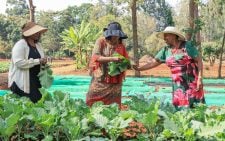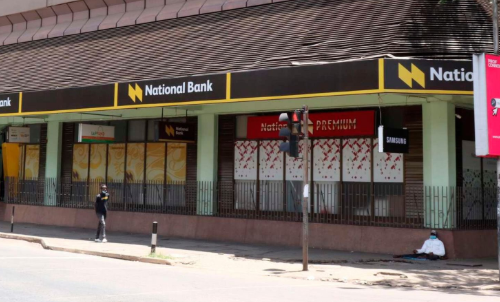Inflation hits 3pc on surge in food and transport costs

Higher cost of food and transport pushed the inflation rate to 3.0 per cent in December, up from 2.8 per cent in November, despite the positive effects of recent rains and a decline in fuel costs.
Prices rose by 0.6 per cent compared to the previous month, signalling a persistent rise in the cost of living.
According to the Kenya National Bureau of Statistics (KNBS), the inflation rate was primarily driven by higher prices in the Food and Non-Alcoholic Beverages category, which increased by 4.8 per cent year-on-year, and the Transport category, which rose by 0.2 per cent over the same period.
“The year-on-year headline inflation as measured by the Consumer Price Index (CPI) was 3.0 per cent in December 2024. This means the general price level was 3.0 per cent higher in December 2024 than in December 2023,” stated KNBS.
The inflation rate remains at the lower end of the Central Bank of Kenya’s (CBK) target range of 2.5 to 7.5 per cent, which has seen Central Bank of Kenya (CBK) Governor Kamau Thugge reduce the benchmark interest rate for the third consecutive time, lowering it to 11.25 per cent from 12.0 per cent, in an effort to stimulate economic activity through a more accommodative monetary policy.
Cost of imports
The strong performance of the Kenyan shilling has also contributed to the relatively low inflation. Gaining approximately 21 per cent against the US dollar since late 2023, the local currency has reduced the cost of imports, including raw materials and finished goods like fuel, offering some relief to the economy.
During the period in review, the overall monthly Consumer Price Index (CPI) increased marginally, rising from 140.81 in November to 141.66 in December. However, prices in the housing, water, electricity, gas, and other fuels category declined by 0.2 per cent during the same period. These categories account for more than 57 percent of the weights in the 13 broad expenditure categories tracked by KNBS.
Under the food category, prices of key staples like sifted maize flour, fortified maize flour, and loose maize flour rose by 7.0 percent, 5.8 percent, and 1.8 percent respectively compared to the previous month. On the other hand, prices of mangoes, Irish potatoes, and cabbages dropped by 6.2 percent, 5.0 percent, and 2.8 percent respectively over the same period.
For instance, in December 2024, the price of 1kg of mangoes was Sh125.05, up from Sh103.66 in December 2023. Similarly, 1kg of Irish potatoes sold for Sh122.94, up from Sh98.53, and 1kg of cabbages increased to Sh73.18, compared to Sh55.01 the previous year. These figures reflect annual increases of 20.6 percent, 24.8 percent, and 33.0 percent respectively.
Meanwhile, the housing, water, electricity, gas, and other fuels index rose by 0.2 percent due to higher electricity prices, with 50 kWh and 200 kWh units increasing by 0.6 per cent and 0.5 percent respectively. However, the price of kerosene (paraffin) dropped by 2.0 percent over the same period.
The transport index also rose by 1.8 per cent, despite declines in diesel and petrol prices by 1.8 percent and 2.4 percent respectively. The increase was largely attributed to a surge in bus and matatu fares on certain routes, with fare hikes reaching as much as 50 percent during the December holiday season.
High tax regime
Consecutive monthly inflation increases has raised concerns among Kenyans already grappling with high taxes imposed by the government to fund its development projects. This trend threatens to reduce the affordability of basic food items for households living at the bottom of the economic pyramid.
The inflationary pressures come despite improved agricultural performance that has boosted the country’s food security. As of December 12, 2024, government data showed that Kenya had 95 million 50kg bags of maize, 9 million bags of beans, 10 million bags of wheat, and 2 million bags of rice in reserve.
While these reserves have contributed to food stability, the rising cost of living underscores the challenges facing the government in balancing tax policies, inflation management, and ensuring basic commodities remain affordable for all citizens.















